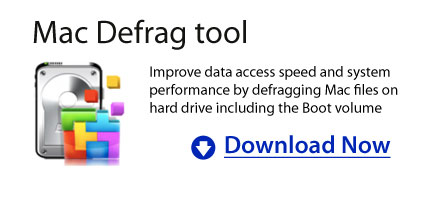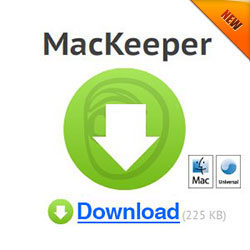Defrag Mac: Does Your Mac Need It?
March 25, 2011
Most Mac users are wondering if defragging their Mac OS and disk optimizing is an effective way in order to repair disk permissions. Even Apple itself is confident that the Mac OS X doesn’t need defragmentation because the system itself is built with its own optimization tool. However defragging might not hurt your system at all particularly of you have large files stored in the hard drive and the memory is already low. If you wish to defrag Mac you can do it and somehow this can also improve the performance of Mac system.
If you think that your Mac system is already slow and applications are taking longer to open then the next thing that you can do is create a backup copy of all your files in the hard drive, then re-install the Mac operating system and then retrieve your important files back to the system. This is quite time consuming and risky thing that you can do but will eventually makes the system to run faster and access the files easily. Another way to do this is use some defragging tools that will create a clone in the drive, reformat the hard drive and then restore back the old files in the system. This is one of the fastest remedy for your slow Mac system.
Is there a Need for Mac Os X Defrag?
Fragmentation is a method where files are divided into separate parts and then stored in different locations in the hard drive. When files are accessed it will look on different locations causing the system instead to slow down. Files systems are composed of different portions that are separated from each other. Once the hard drive is full it will used the smaller space on the disk that will result in dividing the files into smaller chunks and store it in different locations. This is already a process known as fragmentation.
The Mac OS X HFS+ file system don’t need defragging process because the system will only used the space on the hard drive that is recently freed before it will look for other areas where they can store their files. Mac OS X also bundle the smaller space altogether making it into larger portions. And lastly Mac itself perform their own defragmentation process known as Hot-File-Adaptive-Clustering that reduces the files t be fragmented.
Some Mac users often relate defragmentation to disk optimization. This is a different process actually. Disk optimization organize all related files into one group in order to improve the performance of the system unlike fragmentation where it split the files into different chunks and store it to different location. One of the common defragging utility for Mac is the iDefrag application that changes the arrangement of files in the hard disk drive in order to improve the performance of the Mac system.
Mac users are often confused if there is a need to defrag Mac OS X. Although the Apple Company does not recommend doing this but defragging the system is quite beneficial too. Mac OS X itself is built with its own optimization tool to perform its own defragmentation process but disk optimization and defragmentation can be a better solution to improve the overall performance of the Mac system.


